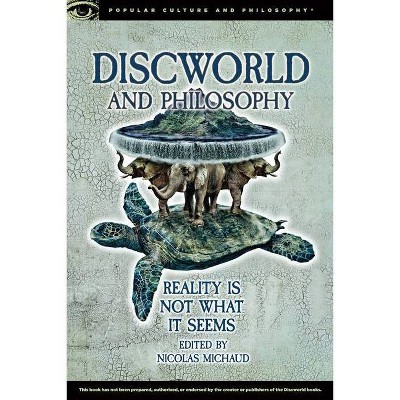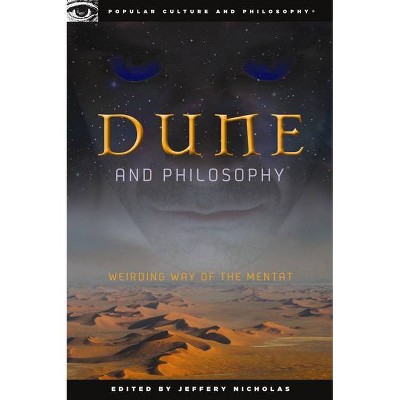Planet of the Apes and Philosophy - (Popular Culture & Philosophy) by John Huss (Paperback)

Similar Products
Products of same category from the store
AllProduct info
<p/><br></br><p><b> About the Book </b></p></br></br>What makes humans different from other animals, what humans are entitled to do to other species, whether time travel is possible, what limits should be placed on science and technology, the morality and practicality of genetic engineering--these are just some of the philosophical problems raised by "Planet of the Apes."<BR>"Planet of the Apes and Philosophy" looks at all the deeper issues involved in the "Planet of the Apes" stories. It covers the entire franchise, from Pierre Boulle's 1963 novel "Monkey Planet" to the successful 2012 reboot "Rise of the Planet of the Apes." The chapters reflect diverse points of view, philosophical, religious, and scientific.<BR>The ethical relations of humans with animals are explored in several chapters, with entertaining and incisive observations on animal intelligence, animal rights, and human-animal interaction. Genetic engineering is changing humans, animals, and plants, raising new questions about the morality of such interventions. The scientific recognition that humans and chimps share 99 percent of their genes makes a future in which non-human animals acquire greater importance a distinct possibility.<BR>"Planet of the Apes" is the most resonant of all scientific apocalypse myths.<p/><br></br><p><b> Book Synopsis </b></p></br></br>What makes humans different from other animals, what humans are entitled to do to other species, whether time travel is possible, what limits should be placed on science and technology, the morality and practicality of genetic engineering--these are just some of the philosophical problems raised by <i>Planet of the Apes</i>.<br><i>Planet of the Apes and Philosophy</i> looks at all the deeper issues involved in the <i>Planet of the Apes</i> stories. It covers the entire franchise, from Pierre Boulle's 1963 novel <i>Monkey Planet</i> to the successful 2012 reboot <i>Rise of the Planet of the Apes</i>. The chapters reflect diverse points of view, philosophical, religious, and scientific.<br>The ethical relations of humans with animals are explored in several chapters, with entertaining and incisive observations on animal intelligence, animal rights, and human-animal interaction. Genetic engineering is changing humans, animals, and plants, raising new questions about the morality of such interventions. The scientific recognition that humans and chimps share 99 percent of their genes makes a future in which non-human animals acquire greater importance a distinct possibility.<br><i>Planet of the Apes</i> is the most resonant of all scientific apocalypse myths.<p/><br></br><p><b> About the Author </b></p></br></br><b>John Huss</b> is Assistant Professor of Philosophy at the University of Akron in Ohio and Adjunct Assistant Professor at the Center for Genetic Research Ethics and law at Case Western Reserve University. He is co-writer, with Loch Phillipps and Lee Skaife, of the cult classic film, <i>Use Your Head</i>.<br>
Price History
Price Archive shows prices from various stores, lets you see history and find the cheapest. There is no actual sale on the website. For all support, inquiry and suggestion messagescommunication@pricearchive.us




















